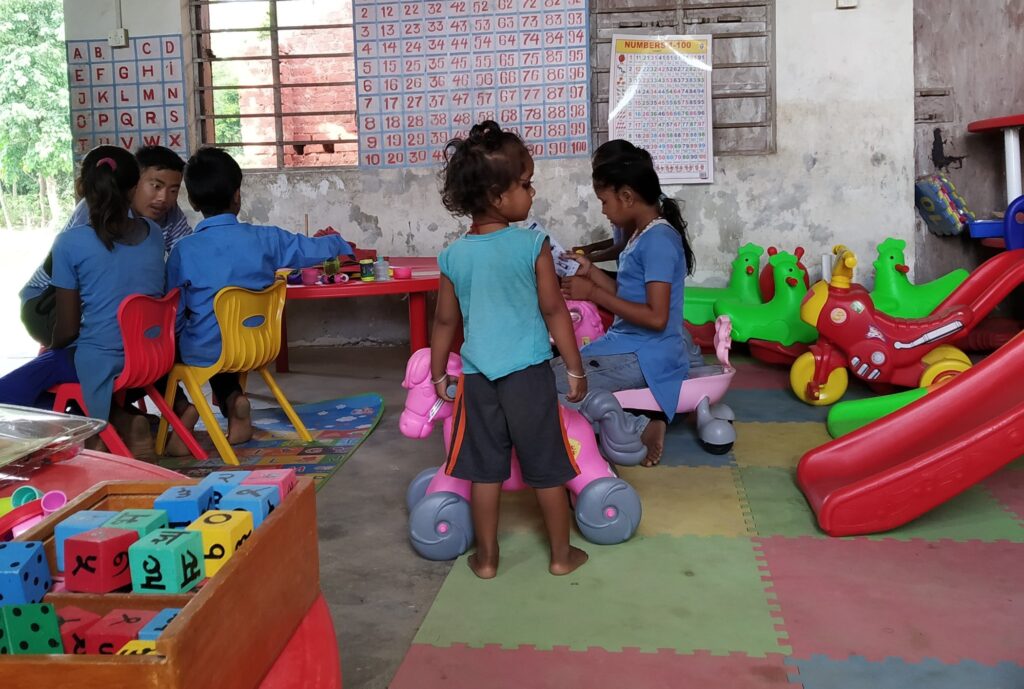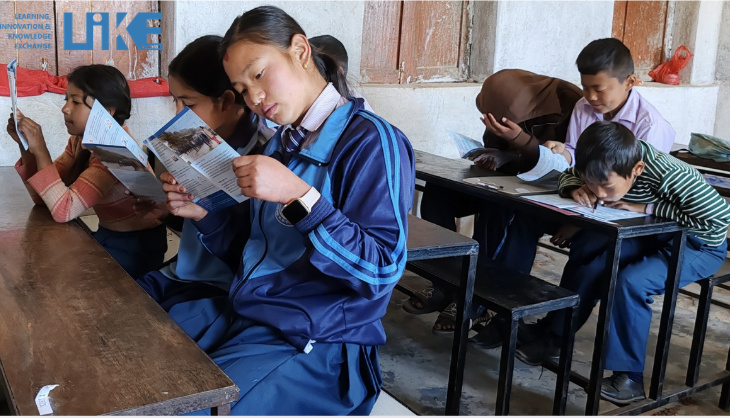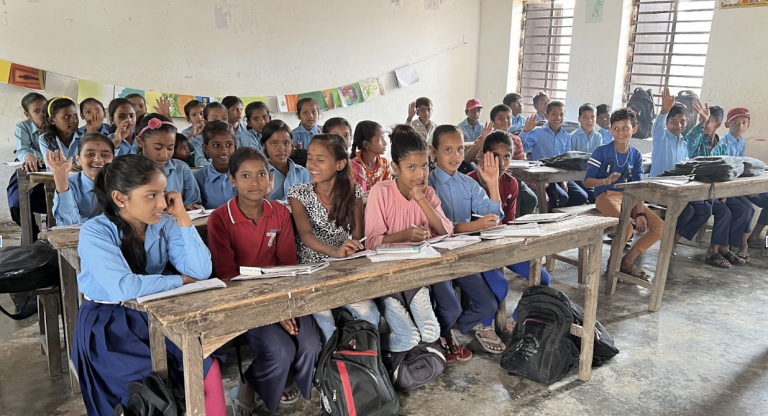
Author: Gatha Shree Dahal
Based on in-comprehensive analysis and isolated cases, there is a prevailing assumption among different stakeholders in the education system of Nepal that the students studying in the public schools in Rautahat are burdened with household chores and economic responsibilities imposed by their parents (Himalayan Times, 2017). As a result, these students do not have enough time for themselves to freely engage in educational activities both in public schools and in their own households. Further, this assumption stems from the data indicating that Rautahat has one of the highest student dropout rates in school (Nepali Times, 2019), largely attributed to factors such as poverty necessitating full-time engagement of students in household chores to contribute to their families (Pokharel, 2022). However, dialogues with students from public schools in Rautahat have brought about a renewed understanding of prevalent assumptions and distinctness explored through situational analysis. The dialogues were gathered from 16 focus group discussions (FGDs) held in nine schools, involving a total of 192 students from three municipalities in Rautahat: Durgabhagwati Rural Municipality, Yamunamai Rural Municipality, and Rajdevi Municipality. Among the participants, 51 percent were female, and the remaining were male. This FGD was a part of the research project “Effectiveness and Scalability of Programs for Children Who Are Out of School and at Risk of Dropping Out in Bangladesh, Bhutan, and Nepal,” supported by Global Partner for Education Knowledge & Innovation Exchange (GPEKIX) and International Development Research Center (IDRC).
Contrary to the above assumptions, students in Rautahat seem to have ample time outside of school to pursue their own interests and activities. While they do contribute to household tasks, it is usually done by their own will to help out their parents rather than being forced into labor. This prompts intriguing questions about our preconceived notions of exploitation and the true nature of how autonomous students are with their time.
Our traditional understanding of exploitation is that students do not have the time and autonomy to pursue activities within their interests. Yet students have hinted at a more complex picture. Despite their responsibilities at home, many are left with a considerable amount of free time after school, especially in the summer due to early morning classes until early noon due to the heat. Here, it is also important to understand that the engagement of students in household chores is driven by a sense of duty and support for family rather than by force and compulsion. In fact, when introduced to the idea of labor exploitation, many students struggled to grasp the idea itself, indicating that there is a gap between our conceptualization and their lived experiences. Having said that, there are students in Rautahat who do not have time to manage the demands of their schools due to heavier responsibilities in their houses. Nevertheless, their numbers have been dwindling rapidly over the years, indicating the evolution of social responsibilities and child development.
Rather than only prioritizing the limitations imposed by household responsibilities, it is crucial to recognize the inherent freedom that students possess in other aspects of their lives, such as choosing their schools and careers. Their freedom is not defined solely by the lack of strict work schedules but also by the opportunities that lie beyond their daily chores. Only then can we appreciate the resilience and adaptability of students to navigate their lives despite their circumstances. While it is important to address true exploitation, we must acknowledge students’ drive to fulfill their familial responsibilities willingly. Furthermore, we should appreciate the students’ capacity to strike a balance between family obligations and engaging in personal aspirations.
In conclusion, the assumption that students in Rautahat’s public schools are being forced into labor and are being deprived of time autonomy demands reexamination. While they do participate in household chores and economic activities, they do it willingly for their family. Their autonomy attests to engagements outside of these responsibilities, enabling them enough freedom to pursue their passions. This observation highlights the inherent freedom and opportunities afforded to these students, allowing them to exercise their time and personal autonomy for the enrichment of their life skills and overall well-being. These factors collectively contribute to the enhancement of their capabilities.



